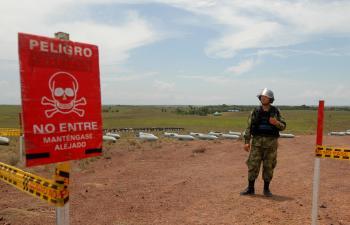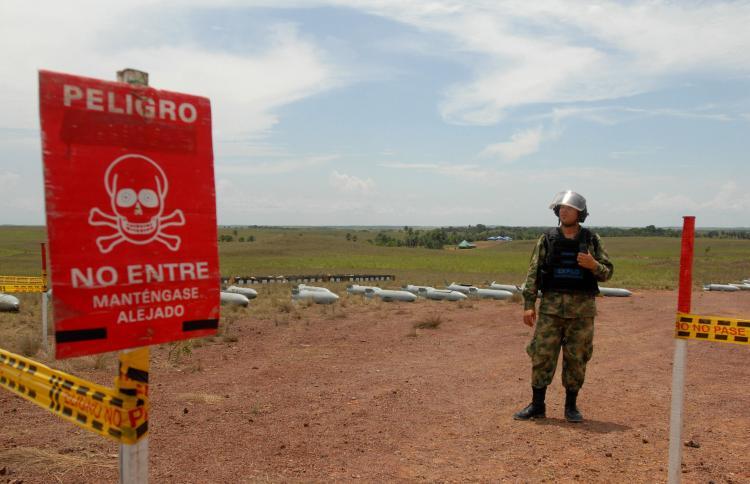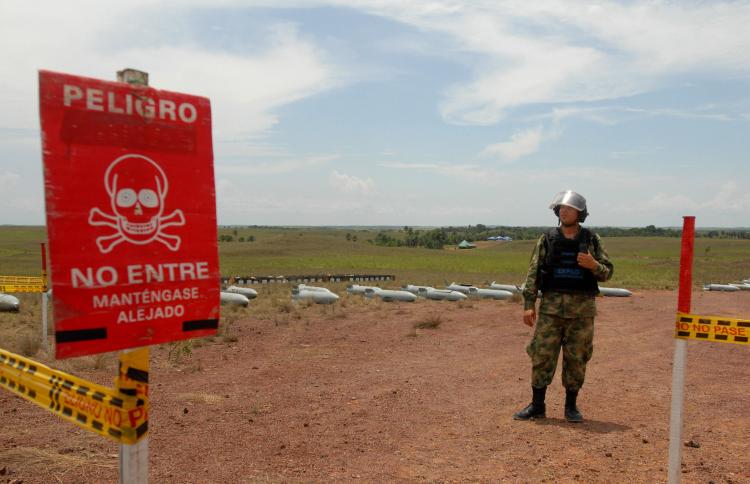Treaty Banning Cluster Bombs Becomes Law
On August 1st this year an international treaty banning the use of cluster bombs has become International law, and according to Amnesty International, the Irish Government played a leading role in negotiating the treaty when it was agreed in Dublin in May 2008.

A Colombian Army bomb disposal expert gets ready to start the controlled detonation of Chilean-made CB-250K cluster bombs May 7, 2009 at the Marandua military base, Vichada department, Colombia LUIS RAMIREZ/AFP/Getty Images
|Updated:





